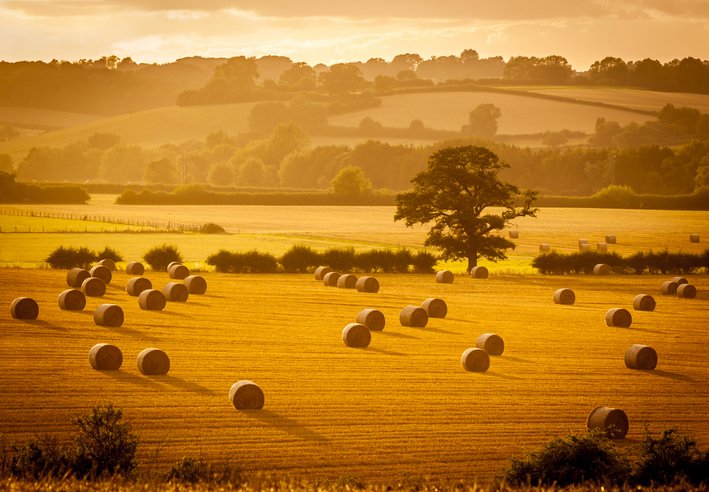WWF, together with leading banks, food businesses, farming groups and civil society organisations have come together to call for ‘bold and decisive action’ from the government to raise the ambition of the Environmental Land Management Schemes (ELMS) for England.
In an unprecedented joint public statement, the organisations from across the food system have called for the ‘ambition and delivery’ of all parts of ELMS to be raised to support farmers seeking to protect and enhance nature, while continuing to produce food.
Nature-friendly farming
70% of England’s land is used for agriculture, meaning that the way we farm and use the land is vital for both reducing emissions and capturing carbon.
In addition the UK is one of the most nature-depleted countries in the world, with more than one in seven of our native species facing extinction and more than 40% in decline.
The schemes will pay farmers to adopt nature-friendly farming practices which lower the use of expensive inputs and futureproof our food system, helping England cut the greenhouse gas emissions (GHGs) driving climate change.
However, the government must ensure that ELMS are both accessible to farmers and delivers on the UK’s climate and nature targets.
To achieve this, Defra must provide sufficient budget for the more advanced, targeted and collaborative actions in ELMS, while also allowing farmers to stack their income options.
This in turn will catalyse private investment which can add to, but not replace, public funding.
Collaborating for action
The statement, which has been signed by more than 50 organisations including WWF, NatWest and Nature Friendly Farming Network, reads:
‘Now is the time for bold, decisive action if we are to create a productive, regenerative and resilient food system into the future.
‘We are all ready to work together to make that happen, including unleashing the potential of the private sector as long as a strong and secure policy signal from government is in place.
‘The UK’s legal net zero and biodiversity commitments depend on the way that our land is used to produce food.
‘Enhancing the ELM schemes is the single largest act of leadership and support that government can provide to this shared endeavour at this crucial time – now is the time to move forward without delay.’
 Play Video about This Rock Might Just Save The World
Play Video about This Rock Might Just Save The World Play Video about Play 2 hours of rock
Play Video about Play 2 hours of rock Play Video about Play 2 hours of brook
Play Video about Play 2 hours of brook Play Video about Play 2 hours of sheep
Play Video about Play 2 hours of sheep











































